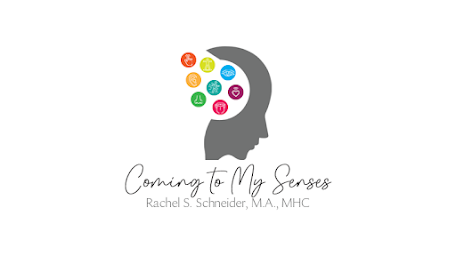Derailed
I know I’ve been a bit MIA lately. To be honest, I was starting to feel almost too comfortable in this new diagnosis of mine. Yes, I thought, finally we’re here – we’re dealing with the issues at the root and no longer pruning the leaves. People starting warming up to the idea, and I’ve received support from friends, family, bosses. I went out and ordered an awareness bracelet, homemade by a lovely lady on Etsy.com, featuring “reflex blue” (purpley-blue) beads in celebration of my sensory sensitivities. I’ve put together draft fliers on adult SPD in preparation for Sensory Awareness Month in October (mark your calendars!) It was a month of great discovery, unfortunately followed by derailment.
Off-handedly and loudly, when requesting support in shutting off one of three supremely bright florescent lights in a classroom, a professor of mine shouted something akin to, “DISABILITY? You have a Disability! You need to register this DISABILITY with the university before I can help you with your Disability.” The entire class was watching.
Disability. Hmph? I’ve heard “disorder,” “neurological condition,” but never “disability.” And it wasn’t just “disability,” it was “Disability,” vivid and clear, with a capital D. Disability. Like the special parking spots, and gently-geared Olympic games. Disability. Like a protective helmet, like missing a leg, like my lack of ability, like being disabled.
I spun around, speechless, cheeks bright red, to face my classmates as I skirted my way across the room back to the safety of my seat, barely fighting back my first set of tears in an entire month. As I reached my chair, she bellowed “you can turn off that light now,” and I complied. When I sat back down, I turned around to face a classmate, who had admitted that she, too, was diagnosed with SPD back when she was 14, and asked her, in whispered shock and in tears, “Does this mean I’m disabled? How do you define disability?” She tilted her head in consideration. “Well,” she started, thoughtfully, “it’s a bit disabling, don’t you think?” I spent the rest of the day’s classes as invisible as possible.
The next 48 hours were comprised of a series of teary meltdowns. Having spent a month marveling that I didn’t have to cry, I spent two days stuck in sad-mode. I asked just about everyone I knew – “am I disabled? Would you consider this a disability?” D., my favorite SPD guru, wrote, “think abilities, not disabilities . . . you are not some freak, some weirdo, or creep. You are just a girl who was born with a bad sensory processing system. That's it. Just some faulty part that makes things go wrong a lot. Other than that, you are totally normal, a very high functioning person. Believe me, I know what it's like to suddenly figure out that you're 'special needs' and 'disabled'. But who declared them disabilities or special needs anyway? The only reason they're called that is because the majority of the population doesn't need them.” My psychotherapist advised me to register with the university. A professor herself, she said it wouldn’t hurt to let my professors know I needed a bit of special treatment. (After all, who really *doesn’t* love special treatment?)
The Americans with Disabilities Act (ADA) has a three-part definition of disability. Under SPD is neurological, and if let run rampant, it does affect major life activities. So there it was, prepared for me and my brethren by the government. Disability.
Since the week before last, when this incidence occurred, I’ve shifted my perspective. Why not feel better in class if possible? Why not reap the benefits of this poltergeist? I’ve asked both my OT and psychotherapist to write letters to the Dean, and I’ve completed a questionnaire from the Dean’s office on what my needs are, and how to meet them (lower lights, understanding, quiet spaces for testing), and I hope to submit the paperwork by the end of this week.
I suppose what actually confirmed this was all going to be OK was meeting with the Dean in person. As I walked into his office, I introduced myself, and he recognized my name from an earlier email. His office was a visual menagerie of plants, clippings, photos, objects – all brightly lit by florescent lights, and within the first ten seconds, I must’ve squinted, as I tend to do, or looked uncomfortable. Without prompting, he jumped up to switch off the overhead lights, allowing his bustling office to be lit purely by the sunlight pouring in through his windows. This isn’t so bad, I thought, as he reassured me the university would take all measures to make me feel more comfortable. I’ve spent 27 years unable to say why I needed support, but now, without question, it’s being laid at my feet.



This sounds like a blessing not a curse. To finally be able to ask for help, and to get it, based on something with a name and definition. Enjoy the natural sunlight!
ReplyDelete